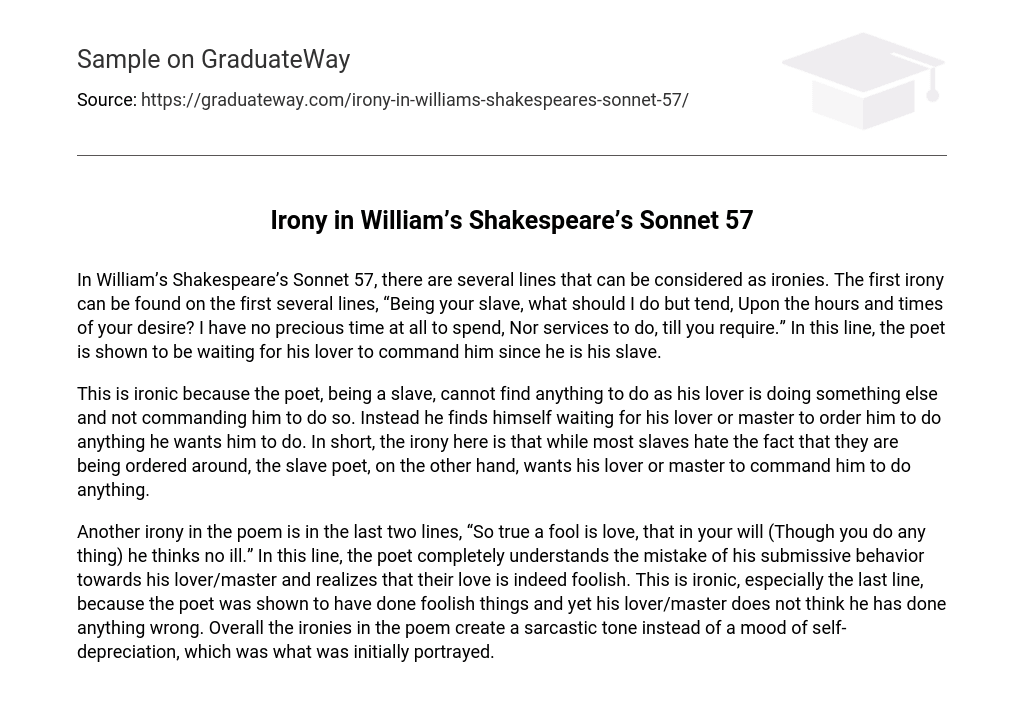In William’s Shakespeare’s Sonnet 57, there are several lines that can be considered as ironies. The first irony can be found on the first several lines, “Being your slave, what should I do but tend, Upon the hours and times of your desire? I have no precious time at all to spend, Nor services to do, till you require.” In this line, the poet is shown to be waiting for his lover to command him since he is his slave.
This is ironic because the poet, being a slave, cannot find anything to do as his lover is doing something else and not commanding him to do so. Instead he finds himself waiting for his lover or master to order him to do anything he wants him to do. In short, the irony here is that while most slaves hate the fact that they are being ordered around, the slave poet, on the other hand, wants his lover or master to command him to do anything.
Another irony in the poem is in the last two lines, “So true a fool is love, that in your will (Though you do any thing) he thinks no ill.” In this line, the poet completely understands the mistake of his submissive behavior towards his lover/master and realizes that their love is indeed foolish. This is ironic, especially the last line, because the poet was shown to have done foolish things and yet his lover/master does not think he has done anything wrong. Overall the ironies in the poem create a sarcastic tone instead of a mood of self-depreciation, which was what was initially portrayed.





